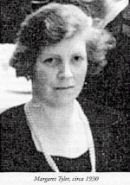Mercurius cor. [Merc-c]
Dysenteric, scanty stools with blood, and incessant straining, not relieved by stool.
Cuprum [Cupr]
Diarrhoea with intense cramps.
Ipecacuanha [Ip]
Violent simultaneous vomiting and purging ( Arsenicum).
Great nausea with pale face and clean tongue.
Stools like a mass of fermented yeast.
Podophyllum [Podo]
Diarrhoea, stools profuse, offensive, gushing, seem to drain the infant dry. Painless.
Stools larger than expected from food taken.
Desire for much water, none for food.
Marked gurgling.
Retching; vomits green froth or food.
Diarrhoea worse in the morning: in teething babies. Head sweats much during sleep.
Rectum may prolapse with soft stool.
China [Chin]
Painless and undigested stools: copious: putrid.
Mercurius [Merc]
Slimy, even bloody diarrhoea: with straining: followed by chilliness.
Profuse perspiration which does not relieve.
Mouth offensive. Salivation with intense thirst.
Tongue large, flabby, tooth-notched.
Worse at night: from warmth of bed.
Thighs and legs cold and clammy, esp. at night.
Phosphorus [Phos]
Characteristic of Phosphorus thin stool oozes from open anus.
Increased urine with diarrhoea.
Or stools large and forcible.
In the tall Phosphorus child: with fear alone–in the dark: thirst for cold water.
Pulsatilla [Puls]
Colic and diarrhoea worse at night.
No two stools alike.
Relief from fresh air. Mild, weepy children.
Phosphoric acid. [Ph-ac]
Long-continued diarrhoea, with cramps ( Cuprum).
Stools white ( Calcarea), watery, painless, profuse.
Pallid, weary, weedy children.
Sulphur [Sulph]
Intolerant of heat: kicks off the clothes: hungry: craves for fat.
Great hurry. Stool acrid. Leaves anus red.
Baptisia [Bapt]
Taken suddenly and frightfully ill. Sudden attack of diarrhoea and vomiting, with a rapidly typhoid condition.
Foetid, exhausting diarrhoea, with excoriation.
Odour of stool putrid, penetrating.
Tongue swollen: dark: dry: yellow or brown centre: cracked: ulcerated. (Comp. Arsenicum)
Drowsy, as if drugged, or intoxicated.
If roused, begins to speak, then fades back into stupor. Dark, red, besotted countenance. Hot–flushed– dusky. Influenzal cases.
Veratrum [Verat]
Diarrhoea with violent vomiting: vomit–stools– sweat very profuse.
Thirst for much cold water, for acid drinks.
Exhaustion after each spell.
Cold sweat on forehead from least movement.
Carbo veg [Carb-v]
Putrid, or bloody, offensive stools. Acrid.
Face pale, or greenish.
Abdomen distended: in lumps.
Emission of large quantities of flatus.
Skin damp, cold: tongue and breath cold.
(The homoeopathic veritable corpse-reviver.).
Aconite [Acon]
From low temperature in room.
From chill or fright.
Green, watery, frequent stools.
Dry heat of body: dry tongue, restlessness and fear. Fear of death.
Bryonia [Bry]
Diarrhoea from hot weather, and the return of hot weather.
Vomits food immediately.
Colic, with thirst for big drinks, and lumpy diarrhoea.
Dry, parched lips.
Dulcamara [Dulc]
Every change of weather to cool, brings diarrhoea. (Rev. of Bryonia) Exposure to cold, or damp.
Changeable stools.
Nausea with desire for stool.
Colic before and during stool. Prostration.
Croton tig [Croto-t]
Yellow, watery stools, come out like a shot, while nursing, or immediately after.
Any food or drink starts this sudden stool.
A hand pressing on umbilicus produced protrusion of rectum.
Aloe [Aloe]
Hurry to stool after eating or drinking.
Inability to retain–or to evacuate–stool.
(Straining may fail to produce stool, which presently slips out unnoticed.).
Ignatia [Ign]
Colic and diarrhoea in breast-fed infants, whose mothers are suffering from grief.
Kreosote [Kreos]
Cholera infantum in teething infants, with very painful dentition: gums painful, spongy.
Severe cases, with incessant vomiting, and stools cadaveric- smelling.
Intensely irritable ( Chamomilla).
(See Homoeopathy, June, 1934, pp. 178-9.).
Chamomilla [Cham]
Watery, greenish stools: excoriating: smell like rotten eggs.
Very cross ( Kreosotum). Must be carried.
Especially in teething babies.
Cactus [Cact]
Bilious diarrhoea, preceded by great pain.
Great weight in anus; desire to pass a quantity, but nothing comes.
Belladonna [Bell]
Drowsiness ( Baptisia) with dry, burning heat.
Pupils dilated.
Stools green, small, frequent.
Colic before stool: straining.
Child starts with every noise: twitches.
Colocynth [Coloc]
Paroxysms of severe colicky pain precede stools. Immediately after eating.
Relief from doubting up and pressure.
Frothy stools. Stools watery, then bilious, then bloody, excoriating; frequent; not profuse.
Magnesia phos. [Mag-p]
Very like Colocynth, but urgently demands heat as well as pressure.
(A case in Hospital: Colocynth had helped the diarrhoea, but the Resident thought the child would die. The only relief was from a warm hand pressed on abdomen. Mag. phos. saved the child.).


